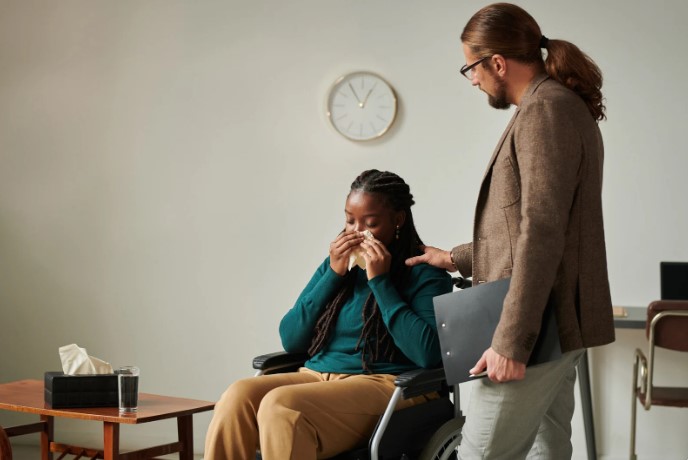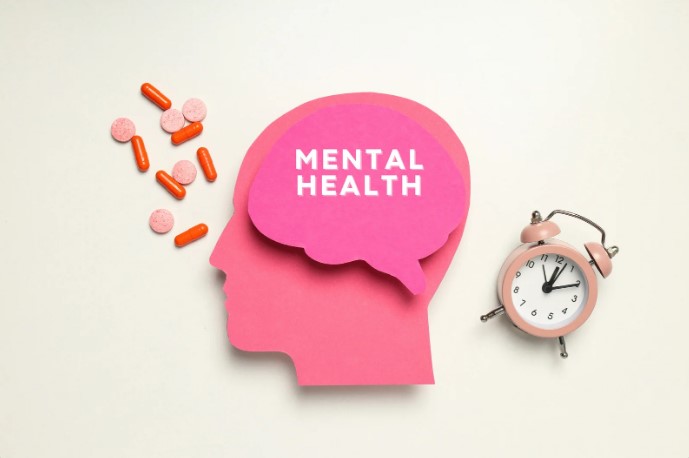Many Floridians seeking clarity about their mental health turn to online self-tests for fast answers. The popularity of digital mental health screenings, especially tools like the URP Behavioral Health panic anxiety disorder test, underscores a shift toward convenient, stigma-free assessment—but clinicians stress these tools are a starting point, not a substitute for professional diagnosis and care.
The Science and Limitations of Online Mental Health Self-Tests
Online mental health screenings have their roots in validated clinical questionnaires, adapted for digital use to help individuals recognize symptoms of depression, anxiety, PTSD, and other behavioral health challenges. Typically, these tools present a series of questions about mood, thoughts, behaviors, and recent experiences. By calculating responses, the tests suggest whether you might benefit from further evaluation or support.
However, the accuracy of these tools depends on several factors. Self-tests cannot replace professional evaluation from a licensed clinician. Many rely on self-reporting, which can be influenced by mood at the time of completion, misunderstanding of questions, or even unconscious bias. Cultural background, education level, and even temporary stressors can affect answers, making results inconsistent.
In Florida, where the diversity of the population is reflected in varied experiences with mental health, online self-tests rarely account for cultural nuances or the complex interplay of physical and psychological symptoms common in subtropical climates. For instance, symptoms of fatigue or restlessness—common in both depression and the effects of Florida's heat—can confound test accuracy.
Most online tests are designed for initial insight, not for clinical diagnosis. They are often used as conversation starters—a first checkpoint that may prompt some individuals to consider a comprehensive assessment; approaches vary. Ultimately, while these tools may raise awareness, many people approach them with caution and some choose to discuss results with a professional; this information is general and not medical advice.
Potential Uses of Online Self-Tests and the Role of Professional Evaluation
For residents of the Sunshine State concerned about their mental state, online self-tests can serve key roles in the journey toward mental wellness. Used thoughtfully, they help individuals recognize patterns in mood, behavior, or anxiety that may otherwise go unnoticed in busy daily life. They can also help prepare for discussions with healthcare providers, giving language to symptoms and validating the need for support.
Yet, the utility of self-tests has clear limits. No online tool can replace the expertise of a licensed psychologist or psychiatrist at a mental health treatment center in Florida. Clinicians rely on detailed interviews, careful observation, medical history, and sometimes physical exams or lab work to understand the full scope of a person's experience.
Advantages of Online Mental Health Screenings
- Accessibility: Self-tests are available 24/7, removing scheduling barriers and providing a private entry point into mental health conversations.
- Early Awareness: They can encourage individuals to recognize potential issues early, before symptoms escalate.
- Reduced Stigma: For those hesitant to seek face-to-face help, anonymous self-tests can decrease embarrassment and normalize mental health care.
- Prompting Action: Test results often motivate users to book appointments or reach out to professionals, transitioning from hesitation to action.
Limitations and Risks
- False Positives/Negatives: Without professional interpretation, test results can cause unnecessary anxiety or a false sense of security.
- Generic Feedback: Many self-tests lack personalization, failing to account for medical conditions, medication side effects, or unique stressors common in Florida's environment.
- Overreliance: Relying solely on self-assessment may delay crucial diagnosis and treatment for serious mental health conditions.

These tools are often viewed as a first step rather than a diagnosis; individual needs differ. URP Behavioral Health’s website urpbehavioralhealth.com includes educational content and information about ways to connect with care; availability and approaches vary.
Disorders Commonly Screened by Self-Tests and the Importance of Professional Assessment
Online self-tests often focus on prevalent mental health issues, aiming to screen for conditions that affect many Floridians each year. Recognizing potential signs and considering professional care may be associated with improved experiences for some; outcomes vary.
Common mental health issues addressed by digital self-tests include:
- Depression: Persistent sadness, loss of interest, changes in appetite or sleep.
- Generalized Anxiety Disorder: Excessive worry, irritability, muscle tension.
- Post-Traumatic Stress Disorder (PTSD): Flashbacks, avoidance of reminders, hyperarousal, often triggered by trauma such as hurricanes or violent incidents.
- Panic Disorder: Sudden, intense fear with physical symptoms (chest pain, rapid heartbeat).
- Substance Use Disorders: Difficulty controlling use of alcohol or drugs, continued use despite negative consequences.
While these self-tests can alert individuals to potential risk, not all positive screenings indicate a diagnosable condition. Conversely, some people may underreport symptoms and receive reassuring feedback despite significant distress.
If more in-depth support is of interest, URP Behavioral Health provides general information about Florida PTSD treatment resources; this is informational, not a referral or endorsement.
KCommon situations in which people consider a professional assessment after a self-test include:
- Persistent symptoms lasting more than two weeks.
- Significant impairment in daily life, work, or relationships.
- Suicidal thoughts or self-harm urges (which may require urgent attention)
- Co-occurring substance use.
- Previous diagnosis or family history of mental illness.
- Desire for a tailored treatment plan, medication management, or psychotherapy.
A licensed provider in Florida typically conducts a thorough evaluation and may offer a diagnosis and care plan—services that go beyond what most online screenings provide.
Integrating Self-Test Results Into Your Mental Health Journey
One approach to using self-test results is integration. Some people choose to share results with a clinician, and bringing printouts or screenshots may help facilitate discussion; preferences vary. This can facilitate a more open, informed dialogue about symptoms, triggers, and treatment preferences.
If results are concerning, some individuals choose to contact a professional or trusted support; urgency depends on the situation. Florida has a range of mental health treatment centers that aim to provide culturally informed care; experiences vary

Choosing the Right Path: Digital Tools and Professional Support in Florida
Online self-tests for mental health provide valuable screening and encourage proactive self-care, but they cannot substitute for the clinical judgment and comprehensive care of mental health professionals in Florida. These tools are often used as a first step. Many people choose to consult a clinician to discuss results; decisions are individual and this content is informational, not medical advice.

